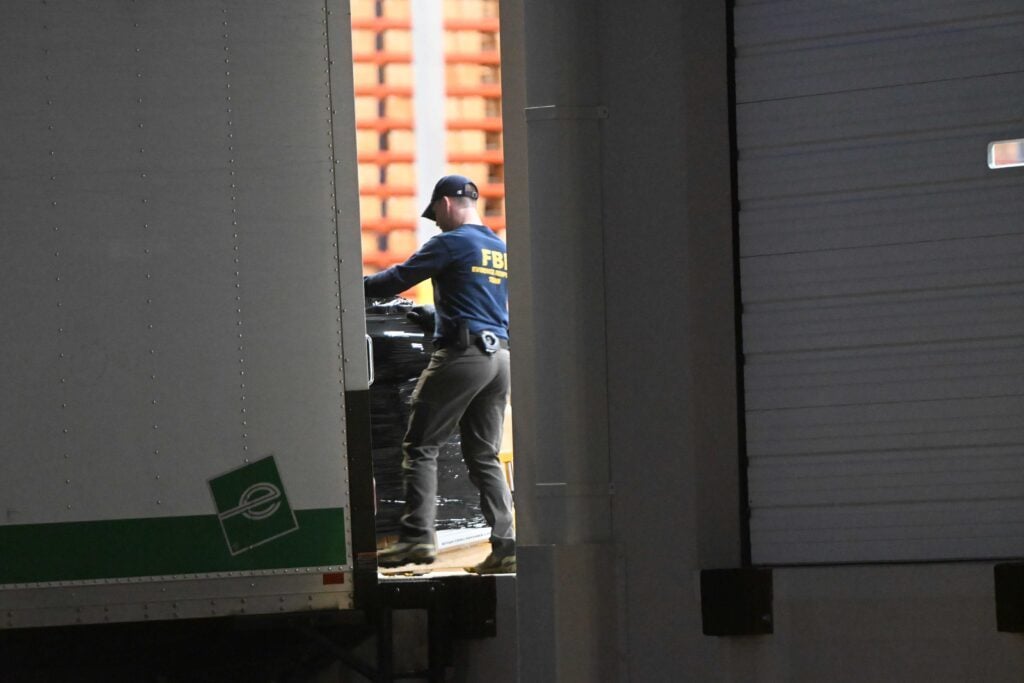The Midwest Innocence Project looks to the next generation

The statistics are staggering: between two and seven percent of all prisoners in the U.S. are innocent. That means at least 40,000 people — and as many as 155,000 people — are rotting behind bars for no reason. Ryan Ferguson (pictured above) was once among these ranks. He spent nearly ten years in prison for a murder committed in Columbia, Missouri, in 2001. He was 17 at the time.
“You miss a portion of your life, and for me it was all of my twenties,” Ferguson, who now lives in Florida but was back in Missouri recently to visit his father, says. “Even now, I’m still struggling to figure out my place in this world.”
Freeing wrongfully convicted people like Ferguson is complex work that takes time, money, and compassion. In the states of Missouri, Kansas, Iowa, Nebraska, and Arkansas, this work often falls to the Midwest Innocence Project (MIP), the local chapter of the national nonprofit that’s “dedicated to the investigation, litigation, and exoneration of wrongfully convicted men and women.” The MIP’s nine-person staff, plus a collection of volunteers, are constantly pushing boulders up judicial hills in the heartland. But it’s not cheap.
“Trying to bring people’s cases back in the courts, after all the doors have already been closed on them — it’s extraordinary work,” says Matthew Merryman, an attorney who volunteers with the MIP. “And they do it on shoestrings.”
Currently, the MIP has 13 cases in litigation with a list of 78 approved for investigation — meaning witness interviews, DNA testing, forensic testing, and more needs to be completed before litigation. On top of those numbers is an ever-growing list of 560 applicants waiting to be screened. MIP director and attorney Tricia Bushnell leads every case, along with another staff attorney and volunteers, including law students, who help screen the applicants and develop strategy.
“The biggest obstacle is that we have a system that values finality over fairness,” Bushnell says. “The United States Supreme Court has yet to find that innocence alone is a reason to let someone out of prison.”
Bushnell adds: “Missouri is ranked 49th in the country for funding for public defenders. What that means is, because we don’t pay for justice on the front end, it’s even more expensive to find on the back end.”
Fundraising is how some of those back-end costs are defrayed. The Faces of Innocence Gala, held on Thursday, April 26, at KC’s downtown Marriott, will include speakers Ferguson and Amanda Knox, who spent four years in an Italian prison for a wrongful murder conviction. The Gala is the primary fundraising event for the MIP, a magnet for big law firms and deep-pocketed donors looking to give to a worthy cause.
But the MIP needs more than just money. It needs a broader awareness of its mission. Recognizing this, Merryman founded the Next Gen Board in 2016 as a way to reach a younger demographic.
“The idea was to bring in some young money,” says Kathleen Irish, current president of the Next Gen Board, and an immigration attorney since 2009. “[Find people] under 40 and help them find ways to get involved.”
The Faces of Innocence Gala is $150 for a ticket — a prohibitive cost for many socially conscious young people. But entry to the Champions of Justice event (featuring music and the stories of local exonerees), to be held on October 2 at RecordBar, is only $10.
“That by itself gets into 200 people’s minds that may not have ever known about [the MIP] before,” Irish says. “That’s something. That’s planting a seed.”
Social media has also helped connect MIP with younger generations, especially through MIPSO, the Midwest Innocence Project Student Organization through the University of Missouri-Kansas City School of Law. Its fundraisers and GoFundMe drives help support recent exonerees once they’re free. These services are especially necessary in Missouri and Kansas, which are two of 18 states where exonerees receive no compensation and aren’t entitled to reintegration services after being released.
“They don’t even give you an apology,” Ferguson says. “They just kick you out the door, and you’re gone. It’s pretty amazing that they won’t even provide the most basic of assistance.”
Lacking a job, a work history, a residential history, steady income, and credit, recent exonerees face long odds securing basic needs. Ferguson had a supportive family, friends, and financial resources that helped him build a life after exoneration. But that’s rare.
“I feel like my story is an anomaly that doesn’t even warrant a reason to talk about,” Ferguson says. “I’ve had more than most exonerees ever will have upon leaving.”
“[Exonerees] have endured what some mental-health experts have analogized to torture,” Bushnell says. “No one leaves prison emotionally unscathed. And the process of healing only begins when an exoneree is released.”
MIP’s success seems to be gradually translating into awareness of these post-prison obstacles. Headlines continue to note the injustice of sending people like Richard Jones (an innocent man who served 17 years for snatching a purse) and Lamont McIntyre (23 years for a murder he didn’t commit; see The Pitch’s 2017 story) back out into the world without a dime in their pockets. Currently wending its way through the Kansas legislature is Senate Bill 336, which would pay exonerees $80,000 for every year of wrongful imprisonment, minus civil judgments from lawsuits. It would also require that records be expunged and purged.
For Merryman, this is why the Faces of Innocence gala and the Next Gen Board’s mission of reaching out to younger activists is so necessary: it attracts the attention and resources that ultimately drive policy on a local (and, ideally, national) level. It’s also inspired Merryman to get in the political ring. He’s currently mounting a challenge to Jackson County Executive Frank White.
“If we all just sit around and wait for change to create itself, then we are all going to be sitting around for a very long time,” Merryman says. “If you don’t step up and lead, who will?”




